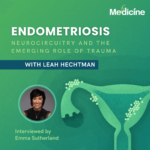Anorexia is simply defined as a lack of appetite but what we’re talking about here is anorexia nervosa, the debilitating psychological condition. Some statistics indicate that Australia has some of the worst levels of male anorexia in the world. Its tricky to know if the incidence is actually increasing or if we are identifying it more as we are removing the stigma and encouraging people to come forward and ask for help. It is a concerning problem and often we don’t expect anorexia to affect males.
The most important strategy is to get a suspected person thoroughly assessed. Anorexia is a psychological and physical condition. People need to be reviewed and counselled thoroughly. Most importantly, they need to develop an honest, trusting and communicative relationship with their practitioners. It is essential that they all work together as a team – including the patient, Naturopath, GP, dietician, and Counsellor. One practitioner cannot provide all of the answers nor manage their care completely.
If a diagnosis is achieved and a collaborative care team developed, each practitioner can work by using their strengths to achieve a positive outcome. From a naturopathic framework, the severe nutritional depletion needs to be thoroughly assessed and treated. The most important nutrient is both protein for repair and Zinc. A number of studies highlight that zinc deficiencies are very evident in anorexics. Zinc helps to improve mood and perception of self by regulating brain chemistry; regulates appetite and improves digestive function so they can actually absorb nutrients from what they eat; and also stabilises hormones – specifically testosterone which is often very deficient in male anorexics. A simple multivitamin/mineral is better than nothing but key nutrients need to be prescribed in high doses to achieve positive psychological and physical changes. As such, worki



